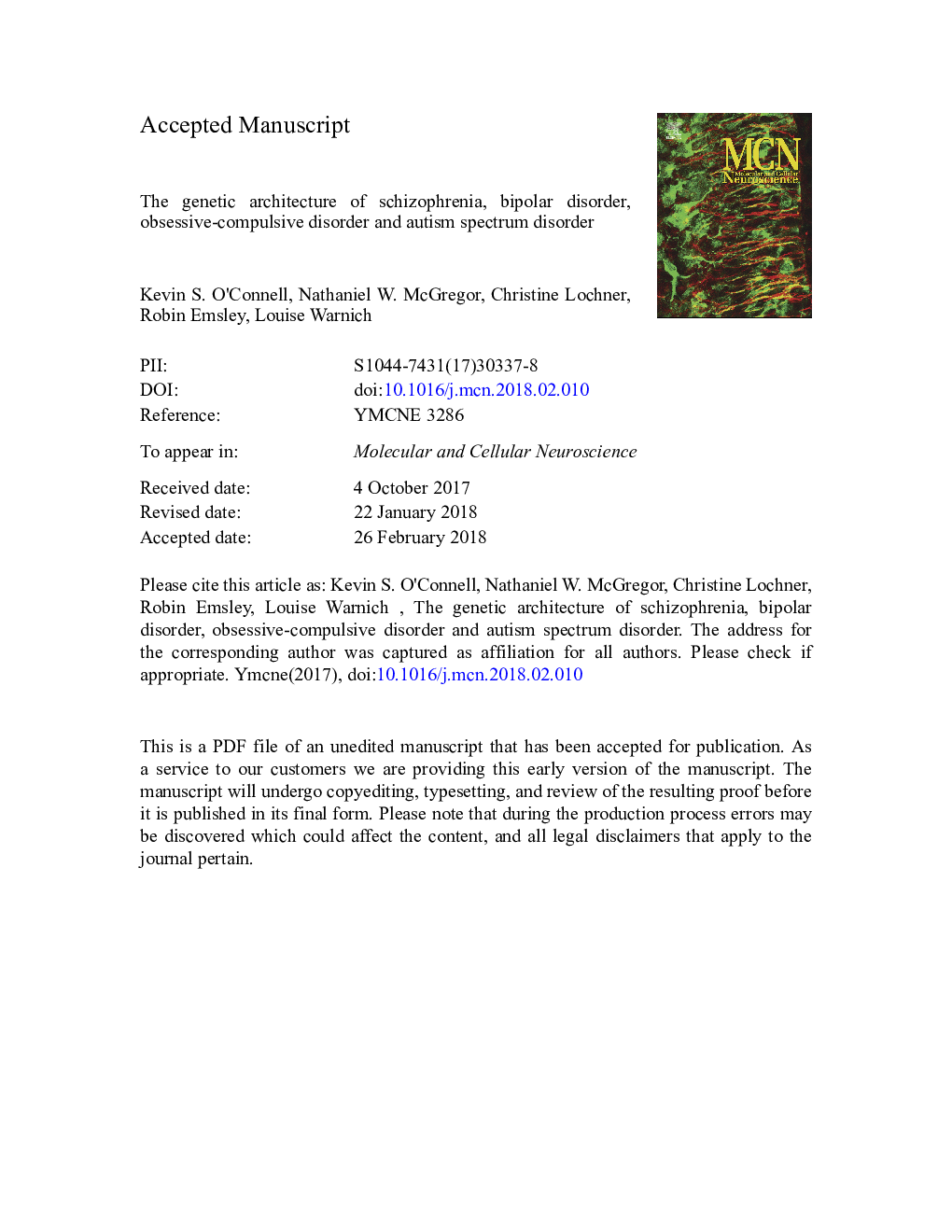| Article ID | Journal | Published Year | Pages | File Type |
|---|---|---|---|---|
| 8478391 | Molecular and Cellular Neuroscience | 2018 | 33 Pages |
Abstract
Considerable evidence suggests that autism spectrum disorders (ASD), schizophrenia (SCZ), bipolar disorder (BD) and obsessive-compulsive disorder (OCD) share a common molecular aetiology, despite their unique clinical diagnostic criteria. The aim of this study was therefore to determine and characterise the common and unique molecular architecture of ASD, SCZ, BD and OCD. Gene lists were obtained from previously published studies for ASD, BD, SCZ and for OCD. Genes identified to be common to all disorders, or unique to one specific disorder, were included for enrichment analyses using the web-server tool Enrichr. Ten genes were identified to be commonly associated with the aetiology of ASD, SCZ, BD and OCD. Enrichment analyses determined that these genes are predominantly involved in the dopaminergic and serotonergic pathways, the voltage-gated calcium ion channel gene network, folate metabolism, regulation of the hippo signaling pathway, and the regulation of gene silencing and expression. In addition to well-characterised and previously described pathways, regulation of the hippo signaling pathway was commonly associated with ASD, SCZ, BD and OCD, implicating neural development and neuronal maintenance as key in neuropsychiatric disorders. In contrast, a large number of previously associated genes were shown to be disorder-specific. And unique disorder-specific pathways and biological processes were presented for ASD, BD, SCZ and OCD aetiology. Considering the current global incidence and prevalence rates of mental health disorders, focus should be placed on cross-disorder commonalities in order to realise actionable and translatable results to combat mental health disorders.
Related Topics
Life Sciences
Biochemistry, Genetics and Molecular Biology
Cell Biology
Authors
Kevin S. O'Connell, Nathaniel W. McGregor, Christine Lochner, Robin Emsley, Louise Warnich,
